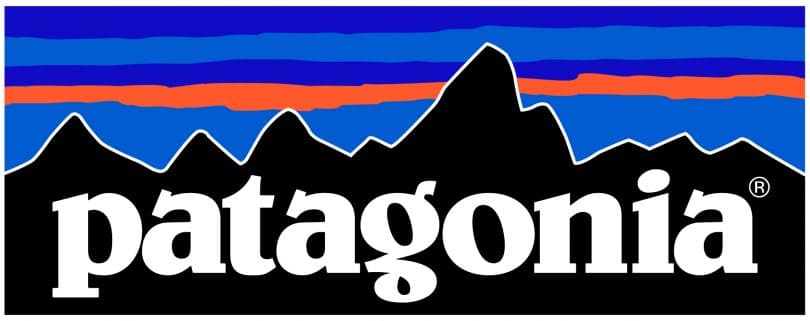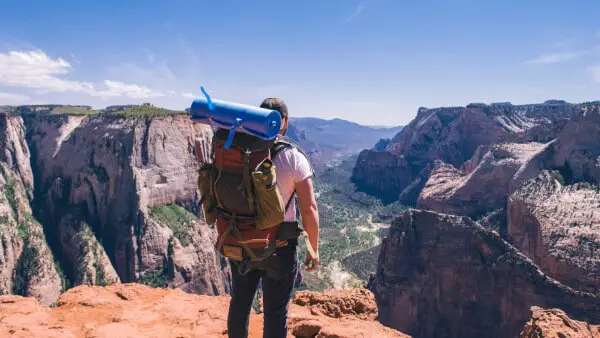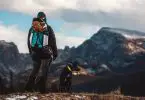When purchasing gear, the sheer number of options can be daunting. Even the humble backpack is no exception to this rule. Just like any other piece of gear you add to your kit, your pack is custom to your favorite activities and to specific purposes.
This fact of life as an outdoor enthusiast means that there is no one brand producing backpacks that you can point to and say “that brand will be the perfect fit every time”. What you can do, however, is take a look at the broader picture and narrow your sites down to a handful of the best backpack brand out there.
See also: Best Solar Backpack: For Charging Your Devices On-the-Go
This guide will showcase our top picks for best backpack companies. Now, these are in no particular order because they all landed on the list for different reasons, but there is common criteria they all met to be called one of the leaders in the backpack industry. The selection process started with over 30 major companies and slowly whittled itself down to what you’ll see below.
The focus was on quality design, sustainable manufacturing, and community involvement. As an outdoorsman it feels good not only to have a technical pack you know you can count on, but to know that it comes from a company that cares about its product, its customers, its employees, and the longevity of the beautiful natural environments we all love to spend time in.
Each section down below will explain a little bit about these four fabulous companies and why exactly they made the list. Hopefully this guide will help you determine which brands to keep on your radar as starting points for future backpack purchases.
Deuter
If you want a company with a rich, proud history, then Deuter should be at the top of your list. This company was founded in 1898 by Hans Deuter, and began its life outfitting Bavarian military units with tents, packs, and the like. In the 1940’s their private sector manufacturing was put on hold and all production diverted, once again, to help supply the military with reliable product.
After resuming their manufacture of recreational packs and gear, Deuter sponsored a host of German backpacking and mountaineering trips to gain honest feedback from users who had really put Deuter gear to the test. Then, in ‘68 they debuted one of the first full ranges of Nylon packs which were incredibly popular due to their decreased weight.
Deuter has, since its inception, maintained a company culture of innovation with an eye for improving products based on the real-life needs of their buyers. This is what pushed them to introduce the “aircomfort” mesh carry system in ‘84, and to produce even more pack innovations in the last 15 years alone.
These include the Trendsetter, one of the first ultra-light packs that focused on reducing a trekker’s load; the “SHIELD” system that enabled the wearer to safely carry very heavy loads (namely, their little ones!), and a full line of packs featuring designs tweaks that accommodate the specials needs of a woman’s pack.
That culture of innovation and dedication to serving their customer base is also what has been them the leader in the German market when it comes to technical packs for outdoorsman.
In addition to providing quality products that utilize available technology to make outdoor sports easier on consumers, Deuter also employs responsible business practices. They rely on open communication within the company and keep one eye on the horizon to avoid having surprise obstacle upset their responsible corporate culture.
While the company has ballooned by over 800% since 1997, they have not let these ideals fall by the wayside. When their current headquarters was being built they utilized green technology wherever possible to lower their environmental impact.
See also: LNT Principles: A Backpacker’s Guide to Leaving No Trace
Deuter is also a proud member of the Fair Wear Foundation, so you can be confident that products bought from them were created in an environment that is safe and healthy for the workers, and that those workers were paid a living wage.
The Fair Wear Foundation is an independent company that pays close attention to the company who display their seal. They look at the manufacturing facilities to ensure that they treat employees well, and they also look at the brands themselves to ensure they are treating fairly with the manufacturing facilities to avoid creating a compromising position that would negatively impact those manufacturing workers.
Patagonia
Patagonia’s story is really cool because it’s a story that, on some level, you wish was your own. It’s an incredibly nostalgic, sepia colored romantic story about a barely-high school aged kid who created his own version of the American dream.
For those unfamiliar with Patagonia’s story, that youngster was the famous Yvon Chouinard. Chouinard taught himself to climb after an afternoon lesson in rappelling down rock faces piqued his interest. From there his love of the sport grew such that, upon seeing the waste involved in the single-use pitons of the time, he taught himself how to blacksmith so that he could improve their design.
This launched what would become the mother of modern Patagonia, a business he ran from the trunk of his car as he traveled around the country climbing where the weather was good.
You see, he had invented reusable pitons. Because he taught himself how to forge them and they could be made fairly quickly, he supported a meager but fulfilling existing of rock climbing for a living by selling these pitons wherever he went.
Eventually he had expanded his business to the point that he could no longer meet demand on his own, and in 1965 Chouinard Equipment was born as a means to mass-produce the climbing equipment he was now known for.
In just five years that had made such a name for themselves by re-engineering a wealth of gear to simplify and remove flaws that it was now common practice to use remove pitons during an ascent. Unfortunately, this enthusiasm on the part of consumers began to erode, literally, the sport.
The heavy-handed tactics required to insert and remove these hard pitons caused physical, irreparable damage to the cliff faces such that popular spots were becoming more and more dangerous to climb because each successive climber was chipping them away bit by bit.
It took two years to come up with a solution, but they did it. In 1972, the premier Chouinard Equipment catalog was published. At the very beginning was a surprisingly moving essay about the need to switch to Chouinard’s new aluminum chocks as a way to preserve that natural beauty of a climber’s landscape.
This was a risky move from a corporate perspective, as those pitons were almost all of the business that the company did. It didn’t matter; it simply had to be done because it was the right and proper course of action.

The gamble paid off and the new chocks saved the landscape and ensured the continued preservation of the sport for future climbers. It wasn’t until the 1960’s that Patagonia was given its current name, when they began to branch out from climbing equipment to clothing and technical packs.
Patagonia wasn’t satisfied with revitalizing just one aspect of outdoor sport. They were also a pioneers of outerwear, including synthetic down materials and utilizing then-modern technology to improve the wicking properties of their performance fabrics.
Again and again, the company has made decisions that but them at risk, with the aim of doing the right thing for their environment and for their customers. This steadfast commitment to keeping the idea of honorable business practices alive is why they are on this list today.
REI
REI is an outstanding company that strives to show how highly it values its employees as well as the environment and their customers. In fact, REI has consistently been featured in Fortune magazine’s list of the top 100 companies to work for. So consistently that they’ve actually been on the list every single year since it began.
That’s a pretty strong endorsement of a corporate culture that really advocates their signature “opt outside” philosophy. That is due in large part to the wealth of perks that REI provides its employees.
All regular employees (yes, even part time!) receive healthcare benefits, and the company also provides contributions to employee retirement plans as well as profit sharing and annual incentives based upon company performance. The performance-based incentives help to encourage a team-centered atmosphere rather than employees competing for an “employee of the month” type recognition.
Win or lose, they do it together. If you spend a significant amount of time with REI, they even offer their employees paid sabbaticals that can be used for, you guessed it: opting outside!
REI is one of the most widely recognized recreation retailers, and they use that power to invest in their communities. They donate up to 70% of their profits to conservation efforts and community organization, and even have volunteer events that they encourage employees to attend during work hours to donate a bit of elbow grease in addition to monetary aid.
Their strong stewardship programs combine with their aims of continually improving sustainability in terms of manufacturing. REI works to source sustainable product and reduce their environmental footprint where possible.
In addition to being a company that really just deals fairly and treats people well, they have a massive selection! REI showcases gear from dozen of brands and even offers their own signature line. This means that whatever sport you’re into, what specifics you’re looking for in a technical pack, REI almost certainly has something to help you.
They don’t boast a ton of retail locations but do have an incredibly user-friendly website. Their product listings online are all accompanied by taglines listing common uses of a product so even if you are new and just starting to look at technical packs, you will get a bit of guidance in making a good purchase decision from the comfort of home.
Columbia
Another American dream success story is embodied in Columbia. This company was founded by an immigrant family seeking refuge from Germany during the second world war. They moved to Oregon and bought a small business – today that business is the outdoor giant we all call Columbia. The company is still headquartered in Portland, Oregon, and still run by the same family – just the youngest generation!
Columbia’s signature “tested tough” stamp of approval is not just a slogan, either. There is a rigorous product approval process in place that gives buyers the confidence that every product with a “tested tough” stamp really does have the grit to go just as hard as you do.
Columbia is focused on taking their product line and ensuring that it truly is the best it can be. They’re never done. In fact, they quote their leader as saying “It’s perfect. Now make it better”.
To this end, they also maintain a massive network of product testers. They gather as much feedback as they can from their product testers on how products behave in the real world, and then they use their technical prowess to improve design and utility.
In addition to durable products, Columbia engages positively with the community and with their business partners. They are a sponsor to community organization that clean up trails, work with youth, and execute conservation efforts.
In terms of sustainability, they strive for LEED certified corporate buildings, and work with manufacturers to ensure that all of the employees involved in their supply chain are treated fairly during the creation of their products.
On a retail level, they also use small details such as reused hangers and reusable bags made out of 80% recycled materials to reduce the environmental impact of their retail operations as much as possible.
Closing Thoughts
All four of these companies are truly excellent, and buying from any one of them is a great decision. Patagonia and Columbia really embody that classic story of grit and the American spirit making your dreams come true, and a true dedication to present product lines to their consumers that really are the absolute best that they can be. REI and Deuter are committed to provide a positive customer experience while dealing as fairly as possible with all of their business partners.
At the end of the day, the answer to your own personal best backpack brand really does depend on you. Everyone’s needs are different based on our chosen outdoor activities, needs, and preferences. Even location can have an effect, as is evidenced by Deuter’s domination of the German market.
However, if you keep this top contenders in mind when it comes time again to go shopping for a pack, you’ll be well on your way to choosing a high performance, durable pack that you can wear proudly with the knowledge that it came from an excellent company.
See more ideas and tips in our article for backpacking 101 and enjoy yourself while camping.
Featured Image Source: https://unsplash.com/photos/DjJxfuZuzYY








